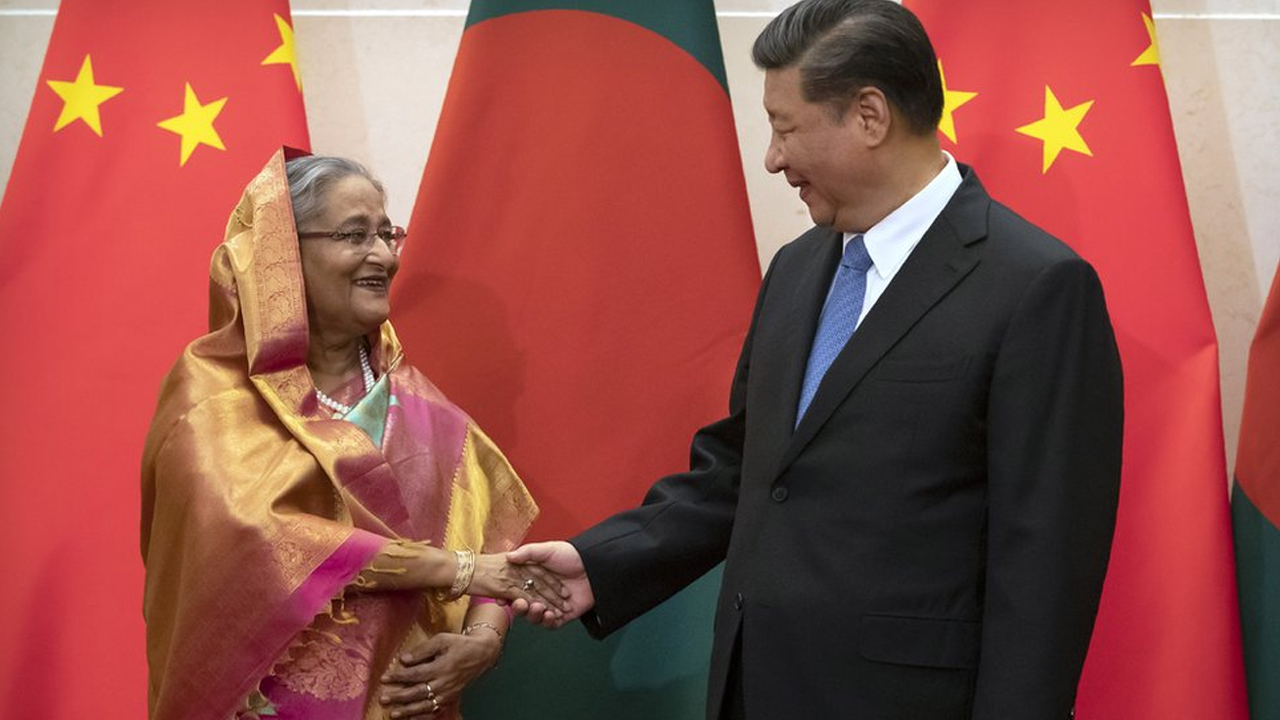Opinion By: Salah Uddin Shoaib Choudhury
In 2019, it was reported that over 600 poor Pakistani girls were sold as brides to Chinese men over a period of nearly two years. Now, a sinister wave of deception is sweeping through rural Bangladesh as Chinese nationals ensnare vulnerable women in elaborate romance traps. These unsuspecting women are promised love and a better life, only to be trafficked to China and sold into the dark underworld of sex slavery and human organ trafficking.
On July 1, 2023, a widow from Chuadanga, a northern district in Bangladesh, married her 19-year-old daughter to a Chinese national named Cui Po Wei, hoping it would relieve them from poverty. She believed Wei had converted to Islam and would settle in Bangladesh. However, within six months, the real face of Cui Po Wei was exposed when he took his Bangladeshi wife to China and forced her into prostitution. The victim’s mother filed a case with a Dhaka tribunal on March 31, 2024.
Earlier, on March 11, 2024, the victim managed to call her mother in Bangladesh using Imo. She reported severe physical torture by Wei and his associates and that she was forced to attend to 10-15 customers every day. Cui Po Wei threatened to sell her to human organ traffickers if she refused to comply.
The victim’s mother personally knows four other poor women in the locality who were similarly deceived into marriage by Chinese nationals. These traffickers, posing as prospective grooms, have agents in Bangladesh who provide them with contact information, including social media accounts, of targeted local women.
Another source, requesting anonymity, stated that two groups in Dhaka actively look for susceptible Bangladeshi women, including those from indigenous communities in hill tract areas. These groups connect the women to Chinese nationals who lure them into romantic traps, marry them, and take them to China.
The source further revealed that these traffickers sometimes meet their targets, who are often indigenous community members or garment factory workers, in various restaurants in Dhaka. Marriage formalities are typically completed through a registration process with marriage registrars present.
Local gang members sign the marriage documents as relatives of the victims. For assisting the Chinese traffickers, local agents receive BDT 5-7 hundred thousand (US$5,982-7,273), and a similar amount is paid to the victim’s family as a “gift from the bride”.
A Chinese woman named Ji Yixian, residing in Dhaka under the pretense of representing a ready-made garment-buying company, is reportedly operating a racket targeting women in various parts of the country, including garment factories in Dhaka and nearby areas.
According to the Criminal Investigation Department (CID), organized human traffickers from China exploit the poverty and helplessness of locals, luring them into marriage traps and then forcing them into prostitution in China. If a woman fails to attract customers due to age or physical complications, she is sold to human organ trafficking rings.

On May 1, 2024, a woman from the indigenous community in Rangamati, an eastern hill tract district of Bangladesh, lodged a complaint with the local police. She reported that a gang of traffickers led by Rikha Chakma had held her sister captive in Dhaka with the intention of trafficking her to China. Rikha resides in Dhaka’s Uttara residential area.
She further stated that her 21-year-old sister was taken to Dhaka with the promise of admission to a nursing institute but was later forced to marry a Chinese man.
On April 26, 2024, a 21-year-old Marma woman from Khagrachhari district filed a case with the local police, accusing five named individuals and two or three unknown others of attempting to traffic her to China. According to the complaint, she was taken to a house in Dhaka’s Uttara Sector-11 area and compelled to marry a Chinese man. Fortunately, locals rescued her and caught three gang members on April 25 when they were taking her to a government office to obtain a document for her passport.
In 2018, three women from indigenous communities were rescued from Chinese sex traffickers through diplomatic efforts. At the time, the Bangladesh embassy in Beijing alerted the government that local and foreign brokers were trafficking ethnic minority girls to China for marriage with Chinese men. The embassy reported that traffickers lure victims with promises of a better life in China by arranging marriages to Chinese businessmen or wealthy public service holders. However, the brides’ dreams are shattered upon arrival in China, facing a stark contrast between the traffickers’ promises and their harsh reality with their Chinese husbands.
Recently, Pinky Chakma, president of the Chittagong Hill Women’s Federation, stated that over the past few years, more than 500 girls, mostly aged 13, have been trafficked to China using fake documents. Some of these trafficked women have shared their tragic stories live on social media.
The alarming rise in human trafficking cases underscores the urgent need for greater vigilance and stronger international cooperation to combat these heinous crimes. As the stories of these brave survivors come to light, they serve as a stark reminder of the vulnerabilities faced by many and the relentless efforts required to protect the most vulnerable from falling prey to such malevolent schemes. The government, NGOs, and international bodies must intensify their efforts to dismantle these trafficking networks and bring the perpetrators to justice, ensuring a safer future for all women in Bangladesh.
Salah Uddin Shoaib Choudhury is an internationally acclaimed multi-award-winning anti-militancy journalist, writer, research scholar, and Editor, Blitz, a newspaper publishing from Bangladesh since 2003. He regularly writes for local and international newspapers. Follow him on X @Salah_Shoaib





